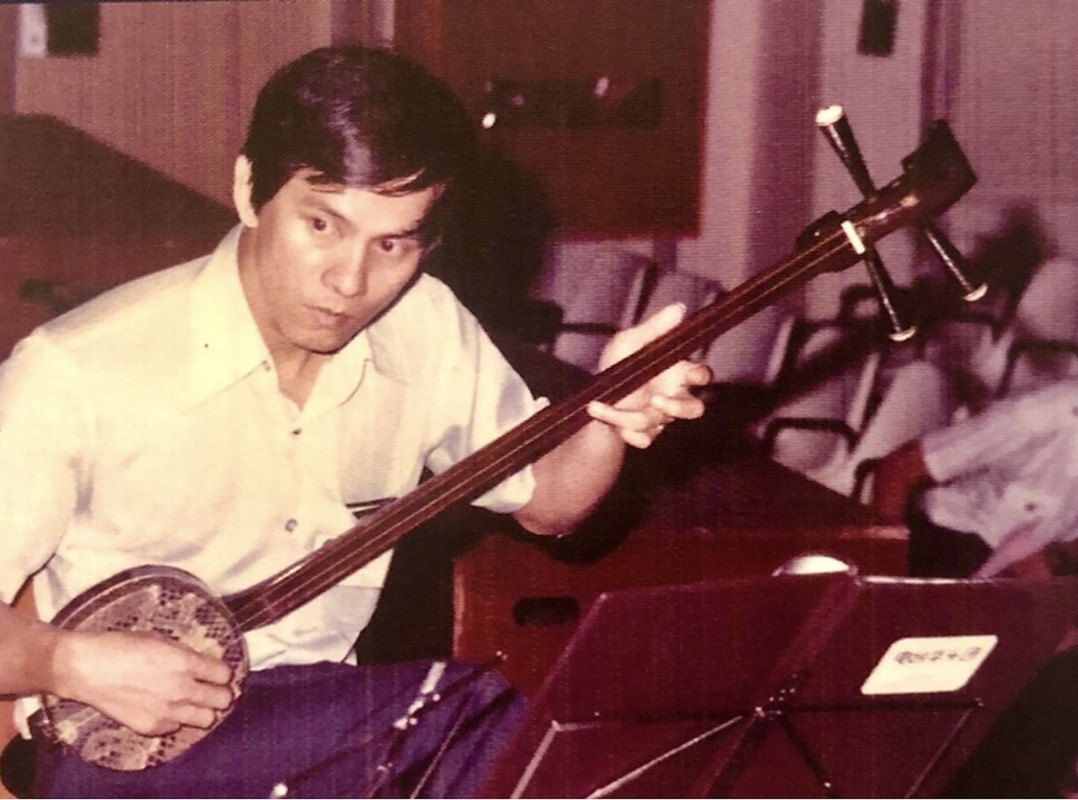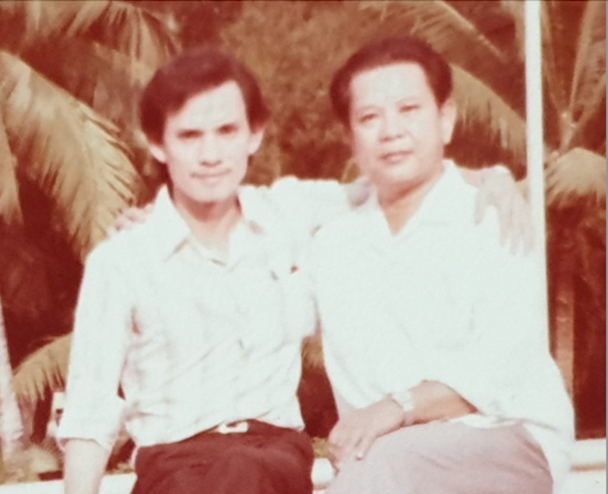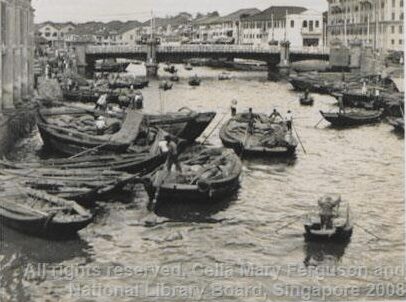Pioneer musician: Boh Chit Hee
Originally from Hainan, China, Boh Chit Hee (1935–2009) migrated to Singapore in 1939 with his mother. He graduated from Chung Cheng High School in 1957 and was admitted to Nanyang University in 1964. Boh, a wireless engineering enthusiast, became interested in music when he was young. He had heard Chinese violinist Ma Sicong (1912–1987) playing Sixiang qu (Longing for Home) during university years, a performance which deeply moved him and decided to shift focus to music.1Due to financial constraints, Boh was initially self-taught in music and did not have any formal training. His skills improved after he received guidance from pianist and educator Mrs Paul Feng Pei Djen (1910–1999).2
In 1959, Boh was invited to conduct the Ai Tong and Chongfu Alumni Chinese Orchestra, a recognition of his skills as a conductor. Thau Yong Amateur Musical Association, which originally specialised in Han and Chaozhou music, also invited him to be the conductor of their Chinese orchestra. Within three years, Thau Yong’s Chinese orchestra had acquired considerable stature, successfully performing major orchestral pieces such as Xunyang yeyue (Moon Over Xunyang) and Huandu xinchun (Spring Festival Celebrations).
Kang Leh Musical Association
In 1963, Boh led most of Thau Yong Chinese Orchestra’s members to join Kang Leh Musical Association, causing the music society to expand into a medium-large ensemble with 41 members. That same year, Kang Leh Musical Association staged a fundraising concert with Nantah Choir, during which Boh conducted difficult orchestra pieces such as Donghai yuge (Fishermen’s Song of the Eastern Sea) and Qingnian gangqin xiezou qu (Youth Piano Concerto) to critical acclaim. This reflected not only a marked improvement in the standards of Chinese orchestra music in Singapore, but also a new height in Boh’s music career.

In the early 1960s, when musical scores could not be imported to Singapore due to restrictions in China, musicians in Singapore could only notate music by listening to records. This depended heavily on their aural skills and required considerable determination, in order to achieve any results. The limitations of his circumstances make Boh’s musical pursuits particularly significant.
Apart from notating Chinese orchestral music, Boh did not compose any Chinese orchestral pieces and was primarily a conductor. Instead, he wrote songs such as the evergreen classic Jiaolin, wode muqin (Rubber Plantation, Our Mother, 1956); Yujia zhige (Fishermen’s Song,1958), a musical play that reflected the plight of the fishermen; and Tongyi gongyun (Unified Labour Movement, 1959), a song about the unification of the labour union movement.
Apart from being a musician, Boh was a renowned master of the art of bonsai (or penjing) and held the position of the president of the Singapore Penjing and Stone Appreciation Society.

This is an edited and translated version of 先驱音乐家:莫泽熙. Click here to read original piece.
| 1 | Tu Ching, ed, Jiaolin womende muqin: yige yinyuejia jiannan de xuexi lucheng [Rubber plantations, our mother: The hardships of a musician in his journey of learning], 7, 49. |
| 2 | Mrs Paul-Feng Pei Djen’s husband Paul Feng (1907–1951) was the managing editor of Singapore Standard (also known as Tiger Standard), who died in a plane crash en route to Kota Bahru, Malaysia on 13 January 1951. The tragedy occurred after the plane had delivered newspapers to Penang. |
Mo, Zhuang Ze, ed. Wrightia Religiosa: The Water Jasmine Bonsai of Boh Chit Hee. Singapore: World Scientific Publishing, 2020. | |
Nanda hechangtuan ji kangle yinyue yanjiuhui wei Nanyang daxue choumu jijin yinyue wanhui [Musical evening to raise funds for Nanyang University performed by Nantah Choir and Kang Leh Musical Association], 1963. | |
Tu, Ching, ed. Jiaolin womende muqin: yige yinyuejia jiannan de xuexi lucheng[Rubber plantations, our mother: The hardships of a musician in his journey of learning]. Singapore: World Scientific Publishing, 2009. |










